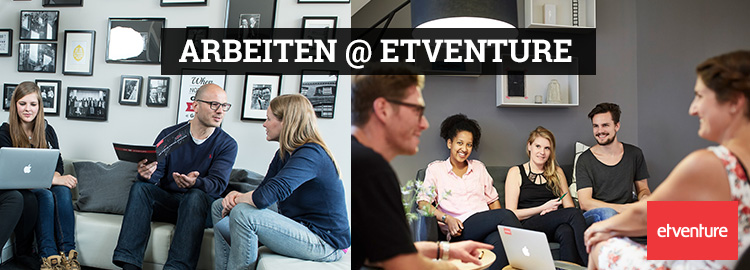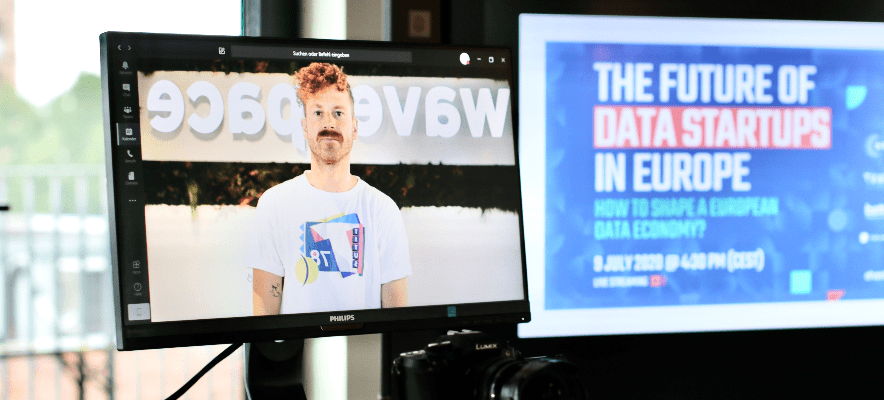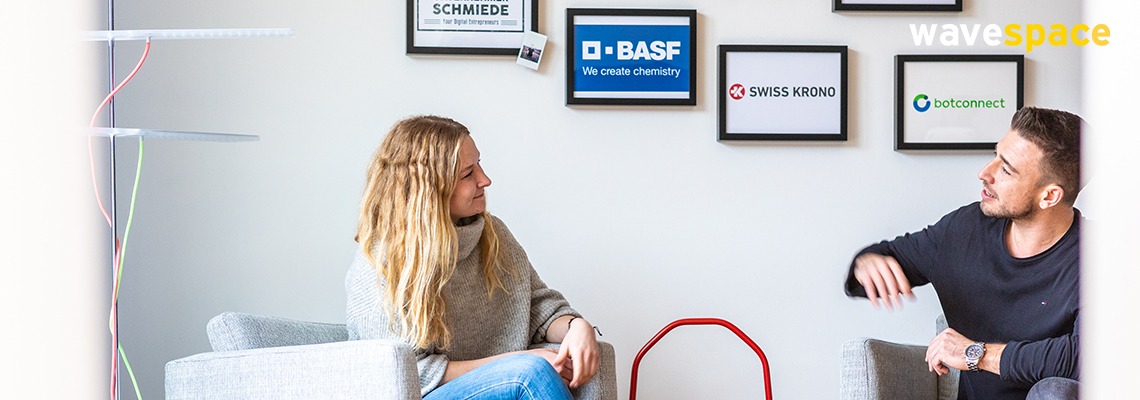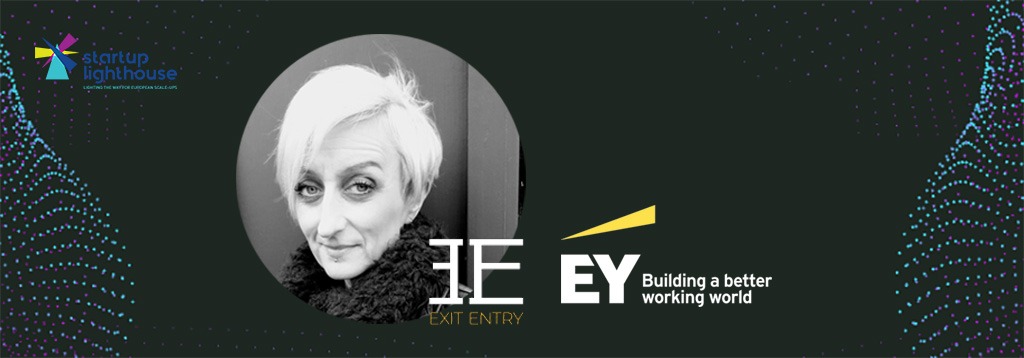Promote employee development, improve expertise – work@etventure
19. September 2016
Human resources departments should be dealing with the effects of the technological and social forces of digitization on the world of work. HR must not impede these changes – instead, it would be ideal if it could act as a further impetus for change, in close collaboration with and on equal footing with management. It should be an attraction marketer, a community builder and finally also a digitization specialist – not an administrator. At etventure, we are using real life tests to assess the contribution that modern human resources work can have in a young, growing company. An article by Dr. Yvonne Köster, Head of HR at etventure.
The press has been reporting for years that the traditional administrative employee has long since become obsolete. But is this actually the reality? Companies are very slow in their attempts to establish programs, and these programs are not producing any changes that address the current requirements. In addition, leadership structures that are mired in the industrial age dominate in many companies. In such cases, a major change would be deemed a blow to the respective power relationships. Things work a bit differently at etventure. We adapt ourselves to the needs and wishes of our employees, and develop flexible new structures from, for and with our colleagues. An example of this is our new competency and mentoring model, which was developed in-house and is being further developed by the employees.
We recently carried out a quick survey among our employees to see what the situation is at etventure. The outcome once again highlighted what makes etventure unique: its startup mentality, executional skills, cooperation on the basis of an equal footing, camaraderie, and a sense of community. Last year, we were voted the most popular employer in Berlin by the employee evaluation platform kununu for exactly these reasons. And we would also like to measure ourselves against this benchmark in the future because there is always room for improvement. When asked about their wishes and ideas for improvement, it became evident that the subjects of further development and competency development are particularly important to etventure’s employees. For this reason, we have spent a lot of time discussing these topics over the last few weeks and have developed a competency and mentoring model.
From the employees for the employees
There is something that differentiates us from the majority of companies in this respect. At etventure, new processes and structures are not simply decided by management but rather designed by the employees themselves. The keyword here is ‘participation.’ The competency and mentoring model also came from within the company – following the tried-and-tested etventure approach: strongly focused on the user (i.e. the employees) and extremely lean and quick. The resulting models are not perfect – they are MVPs that will be further developed together in the coming months.
What exactly is behind the models? The competency model is a tool with which the existing abilities and skills of an employee are rated and illustrated in a clear way. It is an instrument for the professional analysis of the skills in the company and at the same time, it is a motivational system for the further development of each and every individual. The model is not designed to be a control instrument, but rather to show the current status as well as the development opportunities. Who is the expert in Design Thinking? Who speaks fluent Spanish? Who has already created successful business models for B2B or B2C? Who has perhaps already tried and failed to get their own startup off the ground? All these experiences and skills are valuable – and are clearly presented with the digital tool. It makes it possible to find the right people for the right tasks more quickly, and better-fitting project teams can be put together.
In the process, the employees first give themselves a rating for their abilities in different working areas and subject areas. An employee-run committee checks this self-assessment and documents the improvements at regular intervals. In the process, we ensure that individual development is not dependent on a few senior managers who may not be able to correctly assess the skills of each person.
This new tool is supplemented by a mentoring model, whereby every etventure employee is given a mentor. This mentor, or coach, is the employee’s personal development contact person. Together with the mentor, goals are defined and a plan is developed to build up new competencies. Nevertheless, each employee must be the driving force for his or her own development.
A classic win-win situation
With these new tools, we not only ensure that every one of etventure’s employees is given the opportunity for personal development and that they retain their enthusiasm for and enjoyment of their daily work. We also build up new competencies in a targeted manner for ourselves as a company and encourage diversity in the company. This is a classic win-win situation because a company culture that is based on keeping power, doing everything at short notice and elbowing others out of the way will damage the company – and is diametrically opposed to etventure’s values.
We value equality, participation, creativity, flexibility, fun and variety. We are not looking for one type of employee or to develop just one kind. Instead, we want to enrich ourselves with a vast variety of skills profiles – whether these are people from corporations, medium-sized enterprises or startups, people who have different ways of living or are from different ethnic backgrounds. In the end, everyone wins. We see it in a similar manner to Thomas Sattelberger, former Human Resources Manager at Deutsche Telekom: “We don’t employ and train technocrats but rather people who think creatively for people.”
“Cloning is extremely widespread in German boardrooms. Many top managers are German, white, male, have a similar education and have been trained in a corporate environment. Most of them have a respectable ‘McKinsey & Co’ background and have then gone through the same linear process to become managers in the head office. The top managers today may be more academic than in the past, but they are not necessarily better educated. Instead of a great many patriarchs, we now have more technocrats in the corporations.”





* Required field